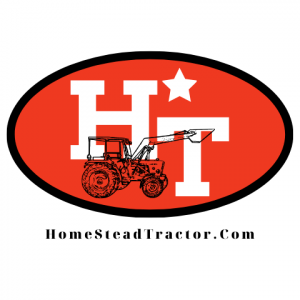In recent decades, urban investors have tended to purchase rural land and convert it into rest house with plenty of greenery and landscaping. Because the rise of structures in major cities leaves little room for greenery and open spaces, the demand for such housing options has grown, and people have begun to invest in land in isolated places deliberately. A farmhouse is an example of this sort of dwelling, as it allows an investor to own both land and a vacation home that is far from the pollution and noise of the city.
Short Summary
What is a Farmhouse?
A farmhouse is a type of residential property located in an agricultural setting. These estates, usually surrounded by a farm or a garden, are also used as rural holiday rest houses. Farmhouses are often built on a large plot of land with front porches. Depending on the amount of land available, farmhouses can be one or two stories and are frequently utilized as second homes or weekend getaways.
Stylish Farmhouse
Even though not all farmhouses are located on working farms, they are usually situated on large lots with plenty of outdoor space. Porches are a necessary design element, as they provide a place for farmworkers to wipe their shoes and remove any dirty clothing before entering the house. A farmhouse’s interior is simple and minimalist, with lots of exposed wood and little, if any, adornment. The rooms in the front of the house are larger and more formal, as they are intended to host family gatherings, business meetings, and social occasions.
The living and dining areas in the back of the house are smaller and offers a more laid back ambiance. The kitchen is arguably the most essential room in a traditional farmhouse. It is also spacious, and well-equipped. You may find an adjacent hearth room, an open fireplace, and a storage pantry in older homes. Also, a central island, ample wooden cabinetry or open storage, and space for a large table consist any typical farmhouse kitchens.
How important is Farmhouse?
A farmhouse is a great real estate investment with a lot of upsides. The owner can sell a portion of the land when he needs cash. Owners of such investments can also manage their investment and sell it to achieve greater returns. In some places, farmhouses were no longer second homes. Some owners are now using them for commercial purposes such as wedding parties, corporate events, etc.
Before you buy a farmhouse, you should know a few things:
- Check to see if the land you’re buying is suitable for farming. All information concerning the land, including the type of soil and crops grown, should be included in the registry papers.
- Make sure a property wall fence surrounds your land. Also, look for other amenities like water, power, and distance from the main road, as most people want to live in a lush and calm environment.
- The Agricultural or farmland you’re buying should have official approval for sale, as failure to do so can lead to problems down the road. Furthermore, not all states allow non-farmers to purchase farms. To avoid last-minute headaches, you should check this ahead of time.
When purchasing farmland, it is important to consider the following factors.
- When purchasing farmland, it’s also important to look at the tax implications. Different tax rates may apply to different types and sizes of farmhouses and fields.
- Check the land records to ensure you understand the boundaries of the property lines.
- It cannot raise livestock if the farmhouse is for growing crops only. It’s critical to double-check these details.
Agricultural Land and Its Properties
Agricultural land is for livestock, growing, and harvesting crops. You can often use the land for traditional residential purposes, such as constructing a single-family home. Agricultural land, in general, is quite flexible, and most vacant rural land falls into this category.
Can you build a Farmhouse on Agricultural Land?
There are numerous distinctions between constructing a building or two to support your farms, such as a home or barn, and constructing residences to sell or rent for residential usage on agricultural land. The number and function of the house you intend to build will determine whether you get permission to build on agricultural land or not – if you can show that the building is for farming reasons such as living on-site to tend to crops or livestock, you’ll most likely gain permission.
Although building a house on an agricultural property appears to be similar to building one anywhere else at first appearance, there are still several and unique concerns while doing so.
Final Takeaway
Investing in a farmhouse is an advantage. You can turn it into a home even if it isn’t your primary residence. Your Farmhouse can be converted into a rest house, cottage, or hotel for visitors, lovers, or families. As a result, you generate a return on your investment and pay off your debt. Consider starting a professional furniture rental business. More and more people from the city are discovering a nice living environment with farmhouses.
